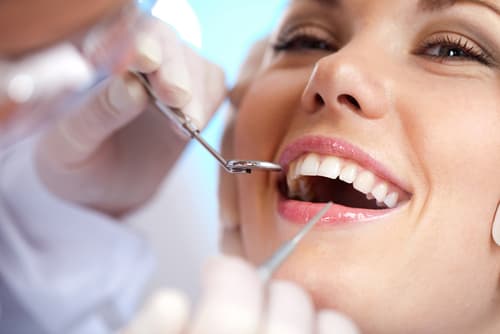Periodontal Disease & Dental Implants: What You Need to Know
There may be no relationship in dentistry that is more complex than that between dental implants and periodontal disease. When left untreated, periodontitis may result in the loss of teeth and molars, which can be restored with implants. Nevertheless, a common question among patients suffering from periodontitis or gingivitis is whether immediate loading implants are suitable for them.
If your teeth are giving you trouble and your gums are making you miserable, now may be the right time to get answers. No matter why you don’t like your smile, it’s never too late to make changes. With an experienced oral and dentist implant specialist in Perris, your gums will be healthy and strong enough to support implants.

What is periodontal disease?
Periodontal disease, more commonly known as gum disease, affects a person’s gums, making them swollen, inflamed, painful, and infected. Symptoms can range from minor inflammation and bleeding (gingivitis) to serious conditions that include gaps, gum recession, and tooth loss (periodontitis). As periodontitis progresses, teeth will be lost and surrounding bone will be destroyed, resulting in painful abscesses and bad breath. To be a good candidate for dental implants, you should be in good dental health.
What causes periodontal disease?
A type of bacteria found in dental plaque causes periodontal disease. Keeping your teeth clean is essential, hence regular brushing and flossing. Plaque removal not only protects the teeth, but also prevents gum disease by removing harmful bacteria.
Several factors can also make your mouth more susceptible to gum infection. The main risk factor for gum disease is smoking. In addition to making you prone to gum disease, it also makes gum disease treatments less effective.
Can gum disease affect dental implants?
As a first step, treating the disease is necessary before placing an implant. To achieve this, the gums must be correctly diagnosed, followed by a cleaning procedure that is specific to each individual case. After that, the dentist assesses the general condition of the mouth, particularly the density and quality of the bone.
Depending on the extent of the patient’s gum disease, a bone or gum graft may be required prior to implant placement. In this procedure, the bone structure is rebuilt with the help of donor bone, for example, cadaver bone, cow bone, or synthetic glass. However, a patient’s own bone is the best option, usually the hip, the jaw, or the tibia. The purpose of gum grafting is to restore gum volume by using healthy tissue.
Once the disease is controlled and implants are placed, it’s crucial that the patient takes good care of them. For anyone to maintain good oral health, proper hygiene is important. In particular, this is especially important for patients with dental implants, because it will significantly impact their maintenance and durability, since dental implants do not receive the same level of natural protection from pathogenic bacteria as teeth.

Where do I find an experienced dentist implant specialist in Perris and the surrounding area?
When it comes to dental implants and getting a healthy and beautiful smile, it is crucial to work with an experienced and reliable surgeon capable of performing the procedure quickly and safely. Also, if you’re worried that it’s too late for you to act, be sure to discuss your concern with Dmitry Tsvetov, DDS, MD whose services have been useful to patients in similar situations throughout Perris and the surrounding cities.
With almost 20 years of experience, we offer a variety of tooth replacement options, including durable and natural-looking dental implants. With us, you can choose from several payment options that fit your budget, and we accept most health insurance plans. Get in touch with us today to schedule your free evaluation!
Comments are closed.

